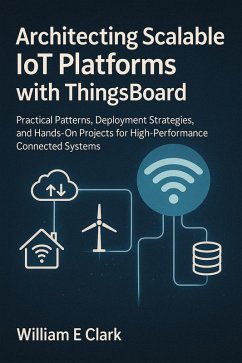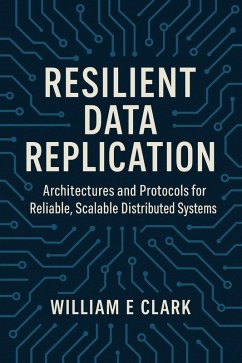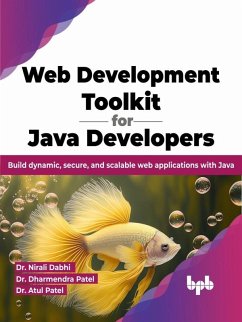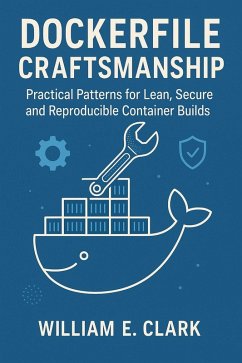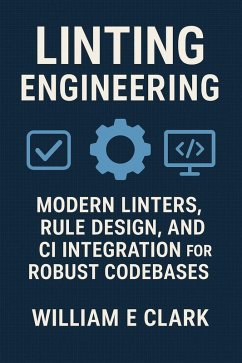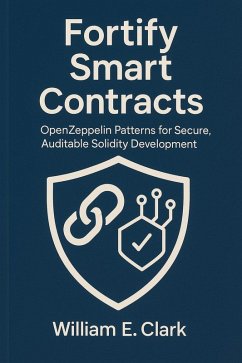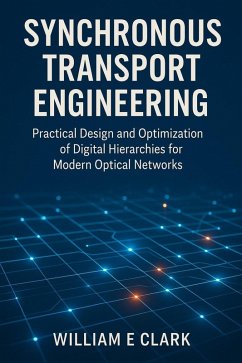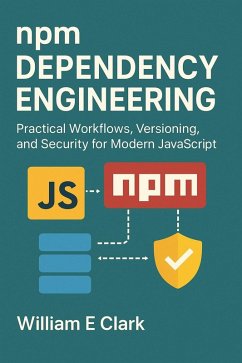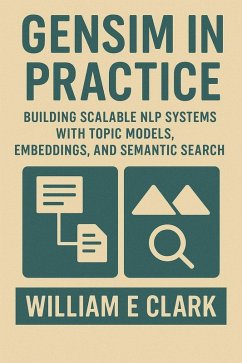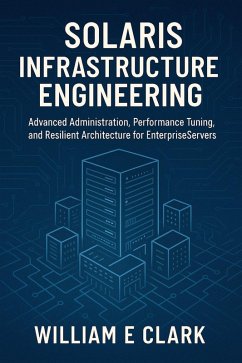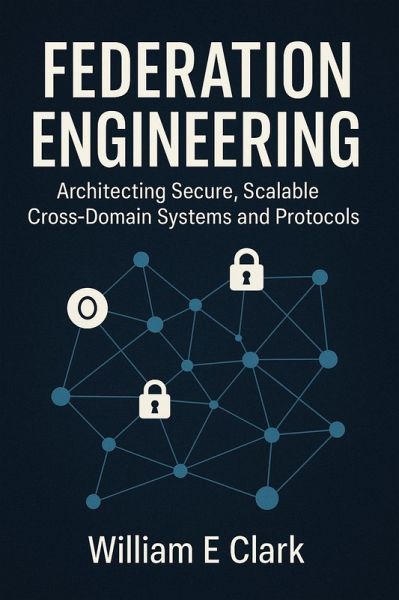
Federation Engineering: Architecting Secure, Scalable Cross-Domain Systems and Protocols (eBook, ePUB)

PAYBACK Punkte
0 °P sammeln!
This authoritative guide reframes federation as an engineering discipline, offering a rigorous foundation for designing secure, scalable cross-domain systems and protocols. It begins by clarifying core concepts and taxonomiesdistinguishing federation from integration and collaborationand systematically analyzes models of autonomy, heterogeneity, and trust. Readers are introduced to the essential properties and persistent challenges of federated systems, including scalability, interoperability, and trust management, all illuminated by historical and contemporary case studies that show how feder...
This authoritative guide reframes federation as an engineering discipline, offering a rigorous foundation for designing secure, scalable cross-domain systems and protocols. It begins by clarifying core concepts and taxonomiesdistinguishing federation from integration and collaborationand systematically analyzes models of autonomy, heterogeneity, and trust. Readers are introduced to the essential properties and persistent challenges of federated systems, including scalability, interoperability, and trust management, all illuminated by historical and contemporary case studies that show how federation drives the evolution of distributed computing.
Moving from theory to practice, the book delivers concrete, implementation-focused guidance for building federated environments. It provides in-depth treatments of federated identity and access controlcovering SAML, OAuth, and OpenID Connectand practical patterns for cross-domain authentication, authorization, and single sign-on. It also addresses federated data access and semantic translation, presenting techniques for distributed query processing, conflict resolution, and privacy-preserving data sharing in regulated contexts, alongside strategies for managing resources and policy across multi-cloud, hybrid, and microservices architectures.
The final section probes advanced and emergent topics that every engineer must master: federated machine learning and defenses against model- and data-targeted attacks; governance, security, and compliance frameworks for multi-stakeholder systems; and novel architectures such as decentralized federation leveraging blockchain. The book concludes with forward-looking guidance on automation using AI and on designing quantum-resistant protocols, equipping practitioners and researchers with the principles, patterns, and tools needed to architect robust federated systems for the future.
Moving from theory to practice, the book delivers concrete, implementation-focused guidance for building federated environments. It provides in-depth treatments of federated identity and access controlcovering SAML, OAuth, and OpenID Connectand practical patterns for cross-domain authentication, authorization, and single sign-on. It also addresses federated data access and semantic translation, presenting techniques for distributed query processing, conflict resolution, and privacy-preserving data sharing in regulated contexts, alongside strategies for managing resources and policy across multi-cloud, hybrid, and microservices architectures.
The final section probes advanced and emergent topics that every engineer must master: federated machine learning and defenses against model- and data-targeted attacks; governance, security, and compliance frameworks for multi-stakeholder systems; and novel architectures such as decentralized federation leveraging blockchain. The book concludes with forward-looking guidance on automation using AI and on designing quantum-resistant protocols, equipping practitioners and researchers with the principles, patterns, and tools needed to architect robust federated systems for the future.
Dieser Download kann aus rechtlichen Gründen nur mit Rechnungsadresse in A, B, CY, CZ, D, DK, EW, E, FIN, F, GR, H, IRL, I, LT, L, LR, M, NL, PL, P, R, S, SLO, SK ausgeliefert werden.




